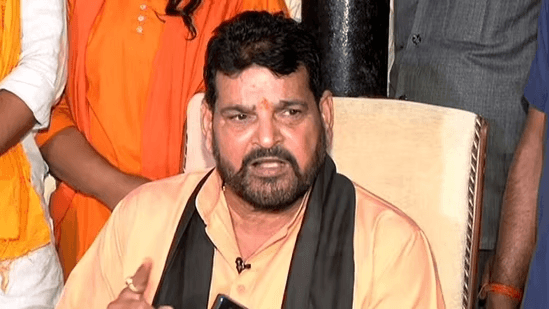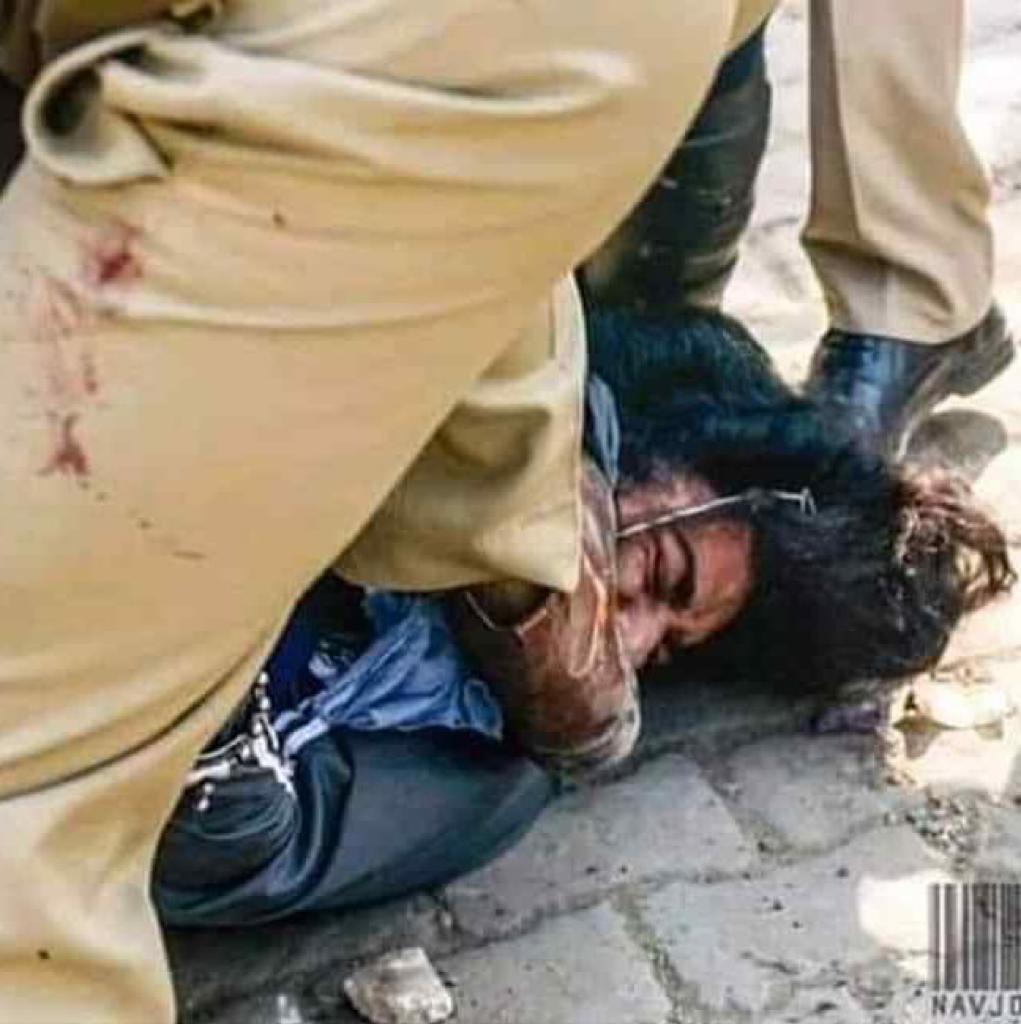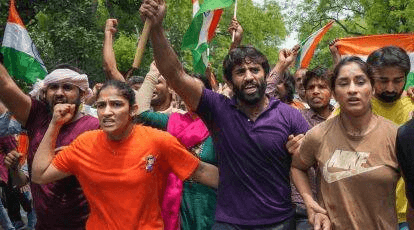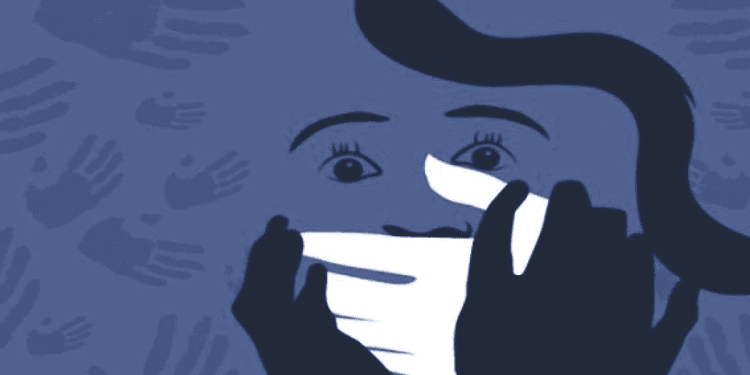Reel to Real: Civic Responses Towards Sexual Abuse in India and Pakistan
“Turned out you were just like us.
So, it turned out you were just like us!
Where were you hiding all this time, buddy?
That stupidity, that ignorance
we wallowed in for a century –
look, it arrived at your shores too!
Many congratulations to you! “
(तुम बिल्कुल हम जैसे निकले
अब तक कहाँ छुपे थे भाई
वो मूरखता वो घामड़-पन
जिस में हम ने सदी गँवाई
आख़िर पहुँची द्वार तुहारे
अरे बधाई बहुत बधाई )
This was written by noted India-born Pakistani poet and human rights activist Fahmida Riaz three decades ago, after the demolition of the Babri Masjid at Ayodhya on December 6,1992, by the Hindutva oriented Karsevaks of the Rashtriya Swayamsevak Sangh (RSS) led Sangh Parivar. Thirty years have passed since then and the Hindutva extremists who once occupied the fringes of Indian society have not only moved on to the centre stage of polity and society, but have a stranglehold across these domains. In many ways, contemporary India looks a mirror image of Pakistan, where religious fundamentalism has been the domineering trait of society and politics for decades, right from its inception. However, there is considerable churning happening in the Pakistan civil society in recent times and in the following nuanced observation, Resmi P Bhaskaran, Policy Analyst, points out how the civil society’s response to sexual abuse in the neighbouring countries is significantly different. The analysis specifically takes into consideration the situation that exists in the country in the context of the agitation of the female wrestlers against sexual abuse. Resmi points out that the civil society in Pakistan seems to be moving towards a positive and judicious response, the Indian civil society is getting engulfed more and more by sectarian positions, marked by total absence of compunction and sense of probity.
Read on – Editor, The AIDEM
Scene 1: Pakistan “Tere Bin” is a popular Pakistani drama starring talented actors such as Yumna Zaidi, Wahaj Ali, and Bushra Anzari. It has garnered over 30 million views per episode and has recently sparked a social media debate due to a controversial scene depicting marital rape.
“Tere Bin” distinguishes itself through the portrayal of an alpha male character’s evolution into an understanding husband of a forced cousin marriage within a feudal family. Husband signs a contract based on his wife’s terms, agreeing to a marriage that exists only on paper. Their conflicting personalities and growing feelings for each other create a continuous struggle throughout the narrative.
In one intense conflict scene where the husband angrily closed the bedroom door, implying his intention to force himself on his wife. The writer’s public justification for including this portrayal of marital rape as a necessary for the story’s progression; sparked a heated debate on marital rape. Viewers strongly rejecting violence and emphasizing that rape remains rape, even when committed by spouse.
Viewers criticized the writer, content team and even actors for portraying normalization of marital rape and the problematic nature of story’s portrayal of a happy ending between the victim and the perpetrator. Critics argued that such portrayal reinforces the perception of marital rape as a normal occurrence in a patriarchal society like Pakistan, despite being unacceptable by law or religion.
 Screengrab from Tere Bin (TV Series, 2022)
Screengrab from Tere Bin (TV Series, 2022)
Furthermore, the popular male lead character, initially seen as a role model, as he respected the wife’s rights and sought her consent; being scrutinized for embodying toxic traits prevalent in society. These discussions shed light on the suffering of women in forced marriages and the importance of consent.
People expressed the opinion that the media should reconsider endorsing such crimes as plot devices, especially when it sacrifices the dignity of the female characters. Discussions indicate a positive shift in societal awareness in Pakistan, prompting conversations about marital rape prevalence and the significance of consent in relationships. The discussions also serve as a reminder that rape is a heinous crime that cannot be forgiven under any circumstances.
However, it is important to consider whether the public would react similarly if the story involved different social class and power dynamics. Additionally, discussions undermined legal or religious recourse for victims, despite the absence of criminalization of marital rape in Pakistan. Nevertheless, the ongoing debate on marital rape in “Tere Bin” contributes to raising awareness and challenging societal norms, reinforcing the idea that consent should always be prioritized in sexual relationships, and condemning forced behaviour.
Scene 2: India Six internationally accomplished women wrestlers, including a minor, have accused Brij Bhushan Sharan Singh, a BJP Member of Parliament and President of the Wrestling Federation of India, on seven charges of sexual abuse. Despite reporting the incidents, their pleas were ignored by authorities. Since April 23, 2023, they have been protesting on Jantar Mantar, New Delhi. The allegations against Singh are severe, with the victim facing threats of murder if they spoke out. The wrestlers, celebrated for their international achievements, lived in fear, humiliation, and continuous trauma while the authorities turned a blind eye.
 Brij Bhushan Sharan Singh
Brij Bhushan Sharan Singh
The wrestlers had no choice but to take to the streets, demanding justice and the arrest of the accused. Unfortunately, their efforts were met with a lack of response and intimidation from the government. The involvement of the Supreme Court compelled the Delhi police to file an FIR on April 27. However, even now no investigation or look-out notice has been issued, disregarding law especially the POCSO law. The complacency of the law-and-order system in this case, despite the victims being national icons, is evident. Meanwhile, the accused has a criminal record, including charges of murder and rape.
 Women protesters being stamped on with police boots
Women protesters being stamped on with police boots
Although the protesting wrestlers have received support from opposition parties and other sources, it is insufficient to awaken civil society’s consciousness. Unlike the media’s fervent coverage and public support during the 2012 Nirbhaya case, the media’s role in 2023 has been muted, leaving raising questions about why the accused remains free and why the ruling party ignores grievances of the wrestlers. This further diminishes public’s trust in the media.
Furthermore, according to the POCSO Act and sexual harassment Act, it is crucial to remove the accused from their positions to prevent manipulation or influence over the investigation. Why has the government and the BJP not taken steps to strip Singh of his positions? This failure to act indicates that members of the ruling party can evade the legal process and potential punishment. It grants culprits immunity in similar cases, reinforcing the belief that the law-and-order system favours the powerful. In this case, the victims cannot be considered ordinary individuals as they are public figures.
 Wrestlers Protest in New Delhi (2023)
Wrestlers Protest in New Delhi (2023)
On May 28, 2023, the wrestlers were forcefully arrested and their protest site was dismantled by the Delhi police. However, the public outcry remains minimal, and only a few people speak out against these abuses. This raises questions about the shift in public perception regarding sexual harassment between 2012 and 2023. Has the severity of the crime become less significant when it involves a habitual offender who represents ruling party in the Lok Sabha, compared to the Nirbhaya case involving slum dwellers?
Today, despite legal provisions and complaint processes, the wrestlers have to protest to get justice. Does this indicate social and judicial consciousness is determined by the dynamics of socio-economic and political status of both the victims as well as perpetuators? Can we conclude that the public response to sexual abuse in India is influenced by the hierarchical position of who inflicted the crime on whom, in other words the public outcry for righteous justice depends less on the gravity of the crime, but more on who committed it? The role of media in shaping such public consciousness is visibly evident and which is dangerously leading to a lawlessness condition.
Marital rape to sexual assault at work place
India, in comparison to Pakistan, is known for its modern legal system that upholds principles of social justice and equity. The enactment of the POCSO Act in 2012 and the Nirbhaya case shed light on the issue of sexual harassment of children and women in India. The legal framework provides clear definitions, particularly addressing sexual abuse of minors and workplace harassment. However, the Supreme Court is still deliberating on defining and criminalizing marital rape, lacking a definitive stance on the matter. India has yet to witness a widespread public debate on marital rape similar to the “Tere Bin” moment in Pakistan. 
Representative Image
While there is clarity within the judicial system regarding sexual assault, actual discharge of justice is often denied and delayed, especially when the perpetrator holds positions of power. At the same time, the victims are further victimized by the system and society at large. The Nirbhaya incident (2012 gangrape of a girl in Delhi, the national capital) served as a wake-up call, raising public awareness on such issues. However, in the past decade, many sexual harassment cases have received mixed responses, particularly when the perpetrator comes from the top echelons of society and the victims belong to lower social classes or marginalized groups. This suggests that a society striving for equality and social justice compromises its values by responding to crimes based on the social status of the involved parties. Erosion of the public’s moral and social values has, eventually, resulted in weakening of the implementation of judicial provisions.
The plight of wrestlers seeking justice is all the more disconcerting and agonizing in a polity and society that claims to honor the “daughters of the nation.” Yet, the civil response to this incident, even after nearly 40 days, is a grave concern. It highlights a fractured consciousness and a society divided at various levels, leaving individuals isolated in their own worlds. This creates an ideal environment for authoritarianism and a socio-political climate that helps cement the privileges of the privileged. The unravelling of the social fabric is a perilous sign of a failing State and a lost society.
When it comes to harassment of women, response of neighbouring countries may vary on the basis of social development. Factors such as cultural norms, legal frameworks, and societal attitudes can influence the prevalence of and response to harassment. India and Pakistan are at different levels of gender development. Nevertheless, the recent incidents indicate that Indian civil society’s sense of awareness and responses towards gender-based violence and discrimination are muted, while Pakistan civil society is showing signs of waking up.







